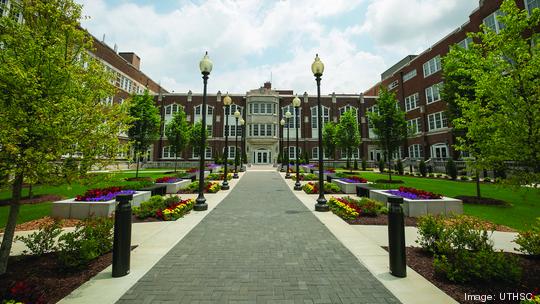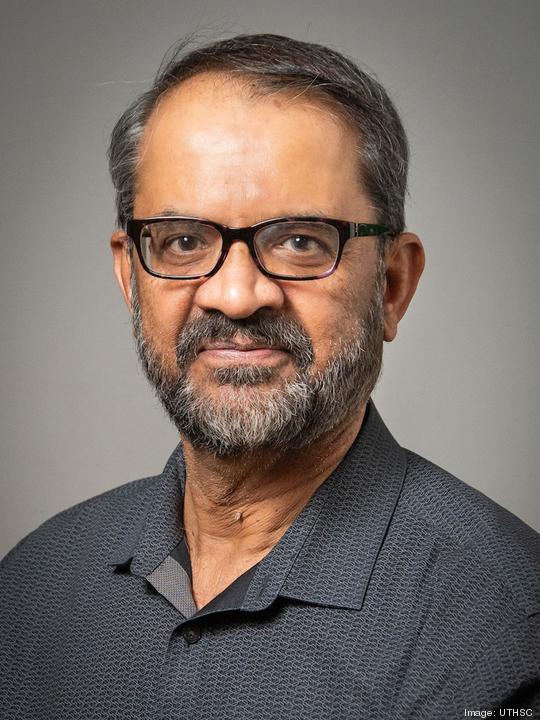
In FY 2022, the University of Tennessee Health Science Center (UTHSC) earned a record $132.9 million in grant and contract awards, marking the sixth straight year it had seen an increase.
Whether the institution can extend the streak in FY 2023 remains to be seen; it’s less than three months into its new fiscal year. But so far, UTHSC is off to a strong start — because faculty members have scored some big awards in recent weeks.
Here’s a look at some of those grants, in a research roundup.
Obesity and cancer link
In several types of cancer, obesity has been linked to increased risks and a more severe prognosis. Now, a team led by UTHSC has received a grant to study this link.
A group headed by Liza Makowski, Ph.D., a professor of hematology and oncology in the UTHSC College of Medicine, has earned a $5.2 million award from the National Cancer Institute (NCI), which is set to fund a study that could fill gaps in knowledge about obesity-mediated cancer risk. Multiple factors can contribute to obesity’s pro-tumor effects, like immunosuppression, which is the suppression of the immune system. The underlying mechanics that control how — and to what extent — obesity-mediated immunosuppression increases cancer risks haven’t been studied in-depth, and Makowski and her team want to change this.
“The Mid-South has a diverse population with a large minority representation, high rates of obesity, and tragically poor patient cancer outcomes, which pose an opportunity for our exceptional transdisciplinary team to leverage impactful lifestyle changes or generate therapeutic strategies for interventions to decrease cancer risk,” Makowski said, in a press release. “Outcomes from this study will define beneficial mediators of obesity-mediated cancer risk that will shed light on how to reduce the risk of cancer or improve treatments.”

Makowski and co. believe that obesity changes the gut microbiome, which can affect the immune system’s ability to look out for the beginnings of cancer. Through the project, they’ll study patients undergoing bariatric surgery, to follow metabolic and immune changes with weight loss over time. They’ll also study healthy subjects who are lean, obese, and of varying ages and races, to look for certain risk biomarkers.
Working with Makowski are Joseph Pierre, Ph.D., an assistant professor in the College of Agriculture and Life Science at the University of Wisconsin-Madison, and Jeffrey Rathmell, Ph.D., director of the Vanderbilt Center for Immunobiology. Colleagues from the Wake Forest University School of Medicine and the University of Memphis College of Health Sciences are collaborators on the project as well.
Mitigating a rising concern
You might not know much about the intestinal epithelium. But the intestinal epithelium plays a key role in your body, forming the gut barrier that prevents allergens, toxins, and pathogens from entering the bloodstream. UTHSC’s Radhakrishna Rao, Ph.D., has received international attention for his two decades of research on its structure and regulation.
And he seems poised to receive more notice for his efforts going forward.
Rao, vice chair and professor in the Department of Physiology at UTHSC, has received a $2.5 million award to study how acute radiation syndrome affects the gut microbiome and intestinal mucosal barrier function. The funds were awarded by the National Institute of Allergy and Infectious Diseases, and come as exposure to radiation becomes a rising global concern, due to large-scale incidents.

The gastrointestinal tract is one of the first organs injured by radiation, but currently, no FDA-approved treatments for gastrointestinal acute radiation syndrome exist — at least not yet. Rao and his team look to determine how radiation alters intestinal immunity, by suppressing antibacterial peptide production in the gut; peptides can help fight bacteria and promote wound healing. They'll explore how supplementing these peptides can prevent and treat radiation injuries, and their project is set to involve testing and developing a new, FDA-regulated drug that can be used when the public is exposed to radiation.
This isn’t the first big award Rao has received recently. Earlier this year, the National Institute on Alcohol Abuse and Alcoholism awarded him $2.5 million, for a project that’s looking to identify therapeutic targets, which could be used to develop drugs to treat alcohol-associated diseases.








